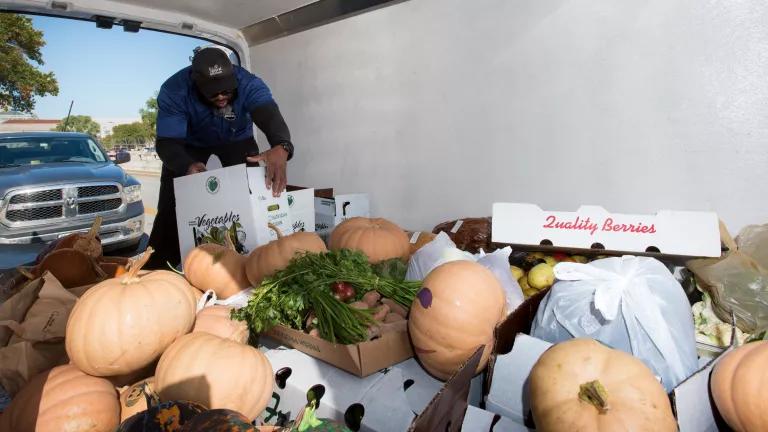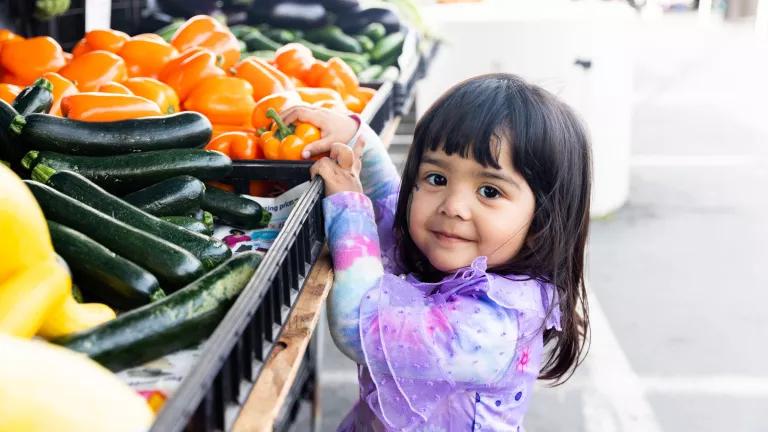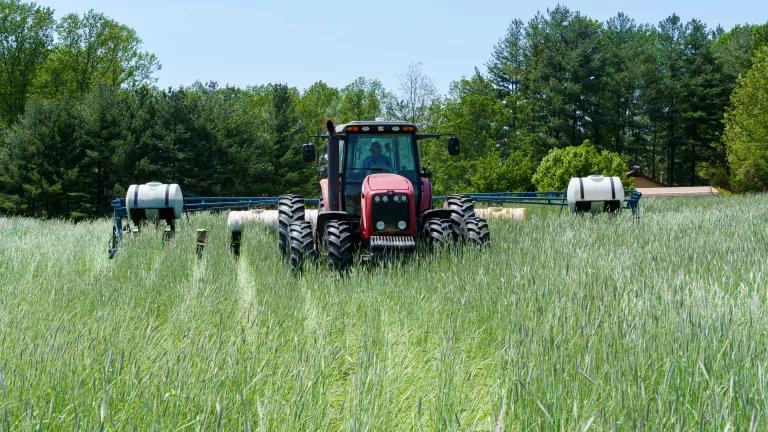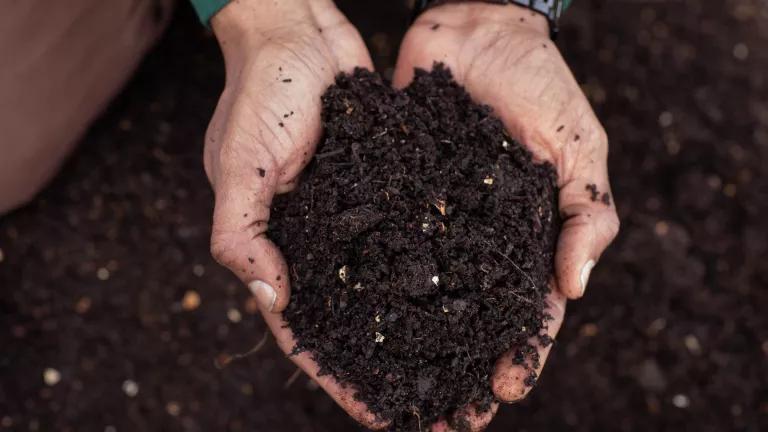USDN/NRDC Food Waste Learning Group for Local Governments
In fall 2018, we launched the NRDC-supported food waste learning group for USDN, focused on using peer-to-peer learning to share information about food waste prevention, food rescue, and food scrap recycling strategies in local governments. NRDC is also deploying tools developed through the Food Matters project with the participating cities, like our baseline calculator.

A driver loading a truck with rescued farmers market produce before distributing it at a community kitchen
NRDC, through its Food Matters project, is focused on sharing replicable strategies to enable local governments to easily learn from each other. That’s why NRDC's Food Matters team partnered with the Urban Sustainability Directors Network (USDN), a network of local government sustainability professionals dedicated to sharing promising practices to build healthier and more sustainable communities.
Food waste was identified as an area of interest by the USDN members they’d like to dive deeper into. In fall 2018, we launched the NRDC-supported food waste learning group for USDN, focused on using peer-to-peer learning to share information about food waste prevention, food rescue, and food scrap recycling strategies implemented by local governments. NRDC is also deploying tools developed through the Food Matters project with the participating cities, like our baseline calculator.
The USDN/NRDC Food Waste Learning Group's monthly webinars average about 30 attendees and cover a wide range of topics—decided via a survey of USDN groups members—drawn from NRDC’s Food Waste Policies and Programs Toolkit for Cities including strategies to rethink, reduce, rescue and recycle. A diverse array of cities and counties participate, varying in size, geography, demographics and progress on food waste strategies.
The following topics have been covered since the first webinar, which took place in May 2019:
- Food waste baseline and impact measurements including an overview of NRDC’s baseline calculator for municipalities to estimate sector-specific food waste quantities and how cities can track progress of food waste solutions.
- Regional approaches to food waste reduction highlighting the importance of regional collaboration to address food waste across city borders.
- Large scale food scrap collection and processing including important considerations for municipalities hoping to ramp up or create new organics programs and innovative examples to secure financing for infrastructure projects.
- Small and medium scale food scrap collection and processing including different options that could work in diverse communities and specific examples of successful programs.
- Business engagement and partnerships and commercial/institutional food scrap generators with an overview of best practices when engaging businesses and building partnerships and a presentation of Denver’s restaurant food waste pilot.
- Framing food waste within broader recycling messaging and utilizing public outreach and education including how to effectively integrate wasted food prevention messaging with examples of successful campaigns across sectors.
- Passing food waste policy with discussion of different policies at the state and local level, how they impact communities, and how to create partnerships and connections to get policy passed.
Each month includes a presentation from an NRDC or other substantive expert and a local government expert, highlighting existing solutions along with their successes, challenges, and lessons learned. The group also includes access to a resource page where members can share best practices, topics they’d like to cover, job opportunities, ask questions, connect with other USDN members, and explore previous webinar presentations.
We are also scaling adoption of Food Matters' tools through the learning group. For example, foundational strategies in the Food Matters toolkit are to estimate a baseline of food waste generation and assess the potential for increased rescue of surplus food. To date, NRDC has run our baseline calculator tool with 10 communities within the USDN/NRDC Food Waste Learning Group and, using the findings, have provided recommendations for future policy and program development. We are exploring opportunities to deploy additional tools and technical guidance within the learning group.
The USDN/NRDC Food Waste Learning Group has proven to be an effective way to connect cities on topics related to food waste reduction. It provides an easy outlet for cross-city relationship building and allows cities to effectively integrate tested food waste reduction strategies. For more information on the USDN/NRDC Food Waste Learning Group, please email foodmatters@nrdc.org.





